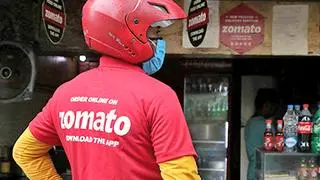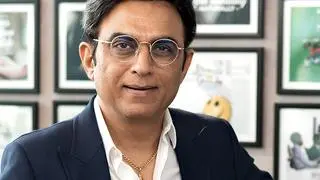With Toyota investing in introducing flex-fuel vehicles, fuel-cell electric vehicles and new technologies, PB Venugopal, Vice President, Toyota Kirloskar Motor (TKM), spoke to businessline on introducing newer technologies, an uptick in demand and supply resulting in long waiting periods and the eventual halting of bookings of Innova Crysta and its preowned business. Excerpts:
Toyota launched the pilot project of a flex-fuel strong hybrid vehicle in India that can run on 100 per cent ethanol. How is the project going and what are the key takeaways?
It is currently on trial and testing and we want to measure jointly what is the well-to-wheel contribution. It is five months ahead in terms of E10 fuel and is also working towards E20 that will help to give cleaner cars to our customers. We are working very closely with the government to get flex-fuel vehicles.
Toyota had patterned with an automotive agency to test fuel-cell electric vehicles in the country. What is the update?
We will have customers with varied requirements; and towards the journey of carbon neutrality, we look at multiple technology pathways. In India, we have now introduced self-charging hybrid vehicles. We are considering all technologies and the right time to introduce them in India that are currently under evaluation.
The demand for automobiles has rocketed after Covid-19. What is the waiting period and when will you start Innova Crysta bookings?
Our customers wait for a long time for the vehicles. We appreciate the patience because of the high number of orders and we always believe in having a realistic delivery time. From that perspective, we temporarily stopped taking the order of Innova Crysta in August. We will restart it once the supply situation is clearer. The situation is improving but considering the demand that is growing exponentially, there is always a gap.
How was the festival season for Toyota this year?
We have grown compared to the same period between January to October previous year. Our growth is around 56 per cent. Markets across the country are growing but in some, there is a K-shaped recovery.
Will Toyota implement a price hike?
We believe in competitive pricing and value for money. We have done price hikes in the past based on cost increases and logistics costs going up. Any technology improvement or cost impact in terms of logistics and raw materials, we will have to keep a balance with regards to having competitive pricing versus the cost and profit.
Any changed consumer insights you are witnessing after the pandemic?
We are seeing a phydigital move — that is customers prefer to have a balance of physical as well as digital information. Customers have become extremely knowledgeable and with digital media, they can understand products better and the latest development in the auto space.
With the US implementing trade restrictions on China, will it impact the semiconductor constraints continuing to impact the Indian automobile industry?
There are semiconductor constraints but it is dynamic and we need to be very flexible in terms of how we manage our demand and supply situation. We are working closely with our principle in Japan and Asia-Pacific.
Toyota started a new preowned car outlet and you joined manufacturers who are selling pre-owned cars. How is the business going? Do you see growth?
We are evaluating and not completely considering further expansion but the business is doing extremely well. We can reach our customers and give them very good value for refurbished cars at a very competitive rate. It is not only about the aesthetic or the glamour part of it. It is important to check the functional part as well. Toyota-certified cars carry a warranty that provides customer satisfaction.
How is the alliance with Suzuki Motors?
The alliance is global and the objective was to learn the competitive way of manufacturing small cars. At the same time, we contribute to providing technology that is more fuel efficient and more environmentally friendly, from that point of view in terms of self-charging hybrid electric vehicles. The alliance is great and we are very confident that it will grow.
Do you plan to expand and invest in future manufacturing plants for local production?
We don’t have an expansion plan. We have two plants; one which manufactures Innova and Fortuner has a capacity of 1,00,000 and the second manufactures Urban Cruiser. Also, we have contract manufacturing for the Suzuki alliance which all comes to 2,10,000. Before making any investment, we improve our production capacity in terms of process improvement, skill improvement and efficiency.







Comments
Comments have to be in English, and in full sentences. They cannot be abusive or personal. Please abide by our community guidelines for posting your comments.
We have migrated to a new commenting platform. If you are already a registered user of TheHindu Businessline and logged in, you may continue to engage with our articles. If you do not have an account please register and login to post comments. Users can access their older comments by logging into their accounts on Vuukle.